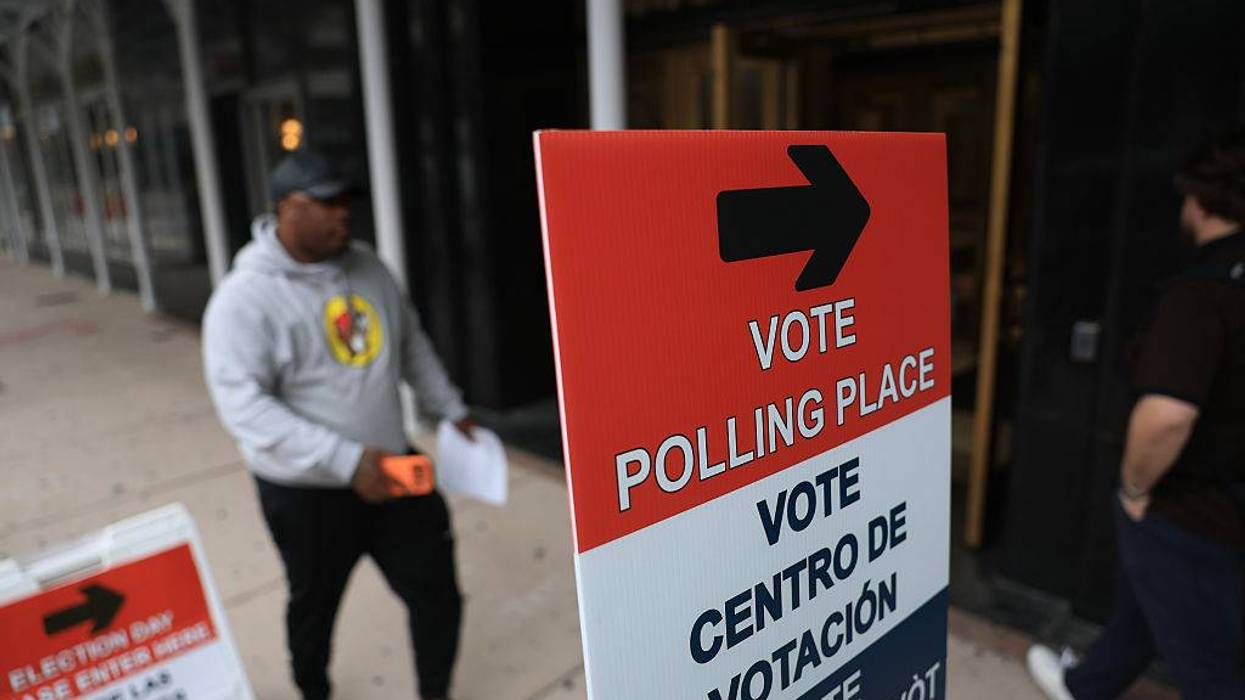Bondi Demands Walz Turn Over Minnesota Voter Rolls to 'Restore Rule of Law' to State
"This is blackmail. This is the way organized crime works."
As Minnesota residents and people across the US were reeling from the killing of protester Alex Pretti by Border Patrol agents on Saturday—the second fatal shooting by federal immigration agents in the city in less than three weeks—US Attorney General Pam Bondi sent a letter to Governor Tim Walz, telling him it is in his power to "restore the rule of law" in his state.
One suggestion the attorney general gave amounted to a "shakedown," said US Rep. Ruben Gallego (D-Ariz.), and had nothing to do with the Trump administration's persistent claims that immigrants have caused a crisis in Minnesota. Bondi demanded the Democratic governor turn over voter rolls for the state, as she has called on all 50 states and Washington, DC to do, prompting legal challenges from voting rights groups and voters.
Bondi wrote that Walz must allow the Department of Justice (DOJ) to access voter rolls to "confirm that Minnesota's voter registration practices comply with federal law."
"Fulfilling this commonsense request will better guarantee free and fair elections and boost confidence in the rule of law," she wrote.
Gallego accused the DOJ of "using fear to get their hands on voter information."
The Trump administration filed a federal lawsuit last September against Minnesota and several other Democrat-governed states to demand personal information for all voters, including driver's license numbers and the last four digits of their Social Security numbers.
Considering President Donald Trump's persistent, debunked claims of so-called "voter fraud" in the 2020 election, including the baseless claim that noncitizens are permitted by Democratic governors to vote in federal elections, advocates have said the DOJ's demands for voter rolls are aimed at further spreading lies and misinformation.
In the letter, Bondi also denounced Minnesota officials for speaking out against US Immigration and Customs Enforcement in the wake of an ICE agent's fatal shooting of Renee Good earlier this month, saying a "national tragedy" has resulted from the "anti-law enforcement rhetoric."
The "tragedy" the attorney general was referring to wasn't the killings of Good and Pretti, but a rise in "violence against ICE officers and agents" that the Trump administration has cited frequently. She didn't provide examples of violent attacks in the letter.
She also demanded that Walz turn over records on Medicaid and food assistance programs and "repeal sanctuary policies that have led to so much crime and violence in your state"—also providing no evidence of such a rise. According to data from the Minnesota Bureau of Criminal Apprehension and the Minneapolis Police Department, crime has gone down in recent years.
Arizona Secretary of State Adrian Fontes said Bondi's letter suggested that Minnesota can expect more violence from federal immigration officers unless Walz turns over his constituents' sensitive data.
This isn’t leadership. This is blackmail.
The Department of Justice has now told Minnesota officials that they will remove ICE if they hand over their voter rolls - this is not how the law works. pic.twitter.com/V9udMnJgPn
— Arizona Secretary of State (@AZSecretary) January 25, 2026
"They're not entitled to that data," said Fontes. "This is blackmail. This is the way organized crime works. They move into your neighborhood, they start beating everybody up, and then they extort what they want. This is not how America is supposed to work, and I'm embarrassed that the administration is pushing in this direction."
Melanie D'Arrigo, executive director of the Campaign for New York Health, noted that Bondi's demand came days after the DOJ acknowledged that a group aimed at challenging election results reached out to two Department of Government Efficiency Employees who were working at the Social Security Administration and requested they analyze state voter rolls.
"This is not a coincidence," said D'Arrigo. "Authoritarians crave legitimacy, and manipulated election results can provide that."



